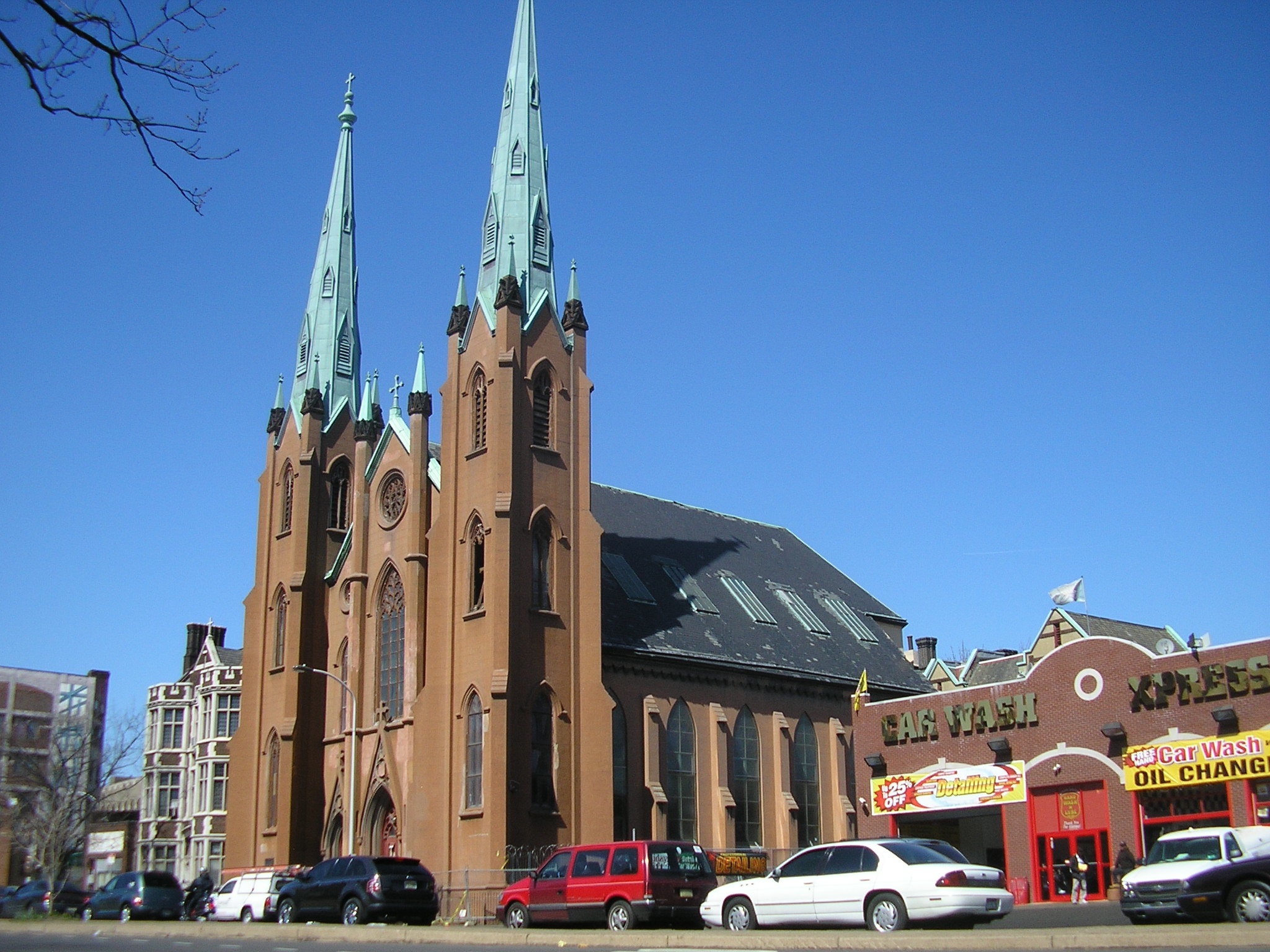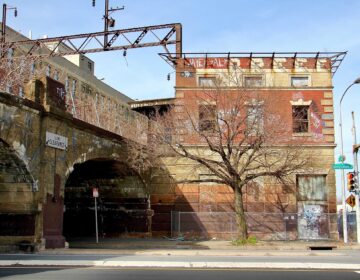Church of the Assumption complex for sale

There’s another chapter being written in the long history of the Church of the Assumption.
Siloam, a non-profit HIV/AIDS organization, in a written statement, announced the sale of its entire property located in the 1100 block of Spring Garden Street. The former church complex consists of three buildings and off street parking.
A bit of background:
In May, the Board of Licenses & Inspections Review unanimously to sustain an appeal made by the Callowhill Neighborhood Association to save the structure. The vote overturned the Philadelphia Historical Commission’s decision to allow Siloam to raze the building.
After the May vote, C. Anne Anderson, a board member of the Callowhill Neighborhood Association, told PlanPhilly “there is a “very serious buyer” interested in the church building. Anderson was referring to The Clay Studio, the nonprofit ceramic arts organization based on North 2nd Street that is seeking space to expand its headquarters.
Wednesday, Amy Sarner Williams, President & CEO / The Clay Studio, told PlanPhilly in an email that: “The Clay Studio has decided not to pursue the Church or any other property for the time being.”
“We don’t have many details at this time about what is being offered for sale or what the asking price is. But, assuming that Siloam intends to sell all of the parcels, including the church, rectory, convent, and three parking lots, then I would see that as a more marketable package than the church alone,” said Andrew Palewski, a contractor who specializes in restoring historic landmarks and the coauthor of the nomination of the church to the Philadelphia Register of Historic Places.
“It all comes down to price and effective marketing, however. I believe that the church would have sold by now if the price was reasonable and the property was well marketed. The same applies to the other parcels. If the package is well marketed and priced to sell, then it will sell. There is an unprecedented amount of construction and redevelopment going on in West Poplar right now—both commercial and residential—so the demand for real estate is certainly there.
“It’s really unfortunate that Siloam has not been able to sustain itself in this location over the long term. The Community Design Collaborative proposed an excellent plan for the group’s expansion into the church and convent. But from the beginning, I think Siloam took on a property that was far too vast for the organization to handle financially.”
PlanPhilly asked Jim Scott at Colliers International, which is brokering the property for $1,725,000, if he thought selling the entire property would be easier than finding a buyer for the church only. “I think it’s too early to know, ” he said. “Unfortunately, it comes with a lot of baggage. Because of the pursuit by various organizations to stop the demolition of the church, it made it a toxic part of this complex. People have not wanted to get involved in a long, expensive clash with the neighborhood. That may continue to be the case.”
Siloam had received permission from the Historical Commission last September to demolish the church building at 1123-33 Spring Garden St. CNA appealed the commission’s decision to the L&I review board, which heard both sides over the course of two sessions in March.
The church was designed and built in 1848-49 by the most prolific ecclesiastical architect of 19th-century North America. Over 600 churches were built by Patrick Charles Keely (1816-1896), and Assumption Church is the oldest surviving Keely structure in existence.
It is also a church with deep religious significance. John Neumann helped consecrate the Church of the Assumption, and Katharine Drexel was baptized there. Both became Catholic saints.
The church has been vacant for more than 15 years, since the Catholic Archdiocese abandoned the building and removed its stained-glass windows, altar and other interior décor. Siloam bought the property in 2006 and explored possible uses. The Community Design Collaborative estimated the cost of restoring the building at $4 million, which has been updated to $5 million to $6 million by a consultant hired by Siloam. In November 2008, the Siloam board of directors decided it could not afford to restore or find a buyer for the property, and it sought the demolition permit.
Community members who wanted to preserve the church nominated it for historic designation. The building was listed on the Philadelphia Register of Historic Places in May 2009. Siloam appealed for permission to demolish the church on the grounds of financial hardship, and the commission’s architectural and financial hardship committees both recommended that the appeal be granted. The full commission voted Sept. 10 to allow the demolition.
According to Cathy Maguire, Sioam Interim Executive Director, “when Siloam decided to tear down the church, the neighborhood community objected and forced Siloam to expend precious resources fighting and defending our right to do so – a right also eventually approved by the Philadelphia Historical Commission.”
Maguire went on to say “during this time, Siloam experienced the effect of the market collapse on their funding sources, as well as the cost associated with an ongoing legal battle. This became the final straw in forcing Siloam’s decision to sell the entire property. Through all of this time, Siloam persisted on and continued to deliver the same high quality services for which it was known”.
For more information regarding the sale of property, please contact Siloam’s Agent, James Scott (215-928-7540) or Michael Barmash (215-928-7519) at Colliers International.
Alan Jaffe contributed to this report. Contact the reporter at mgolas@design.upenn.edu
WHYY is your source for fact-based, in-depth journalism and information. As a nonprofit organization, we rely on financial support from readers like you. Please give today.




